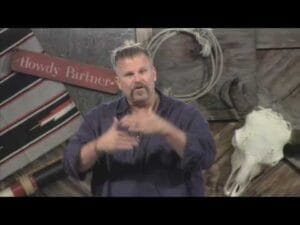
Mormonism and Five Point Calvinism, Part 7
Shawn McCraney emphasizes openness to change in religious beliefs, contrasts Jesus' teachings of humility with Calvinism's predestination, and highlights free will in salvation.

Shawn McCraney emphasizes openness to change in religious beliefs, contrasts Jesus' teachings of humility with Calvinism's predestination, and highlights free will in salvation.
Shawn's teaching emphasizes moving beyond basic doctrines to spiritual maturity, focusing on the complex doctrine of resurrection, its phases, and its significance in Christianity.

Shawn McCraney advocates for biblical alignment in Christian beliefs, critiques religious constructs, emphasizes liberty and love in faith, and questions Calvinist doctrines.

Shawn McCraney analyzes the influence of Swedenborg on Joseph Smith, contrasting Calvinist and LDS views on atonement, and Smith's synthesis of diverse religious ideas.
The teaching urges moving from basic doctrines to spiritual maturity, emphasizing growth over ritual debates. Laying on of hands is symbolic, not essential for faith.

Prayer team for church community; Bible chapters/verses added later; Jesus' miracles foster belief; nobleman's son healed remotely; faith beyond signs; healing at Bethesda.

Shawn McCraney contrasts grace-based Christianity with works-based systems like Mormonism, critiques Calvinism's predestination, and discusses free will in salvation.

Shawn teaches communion as unity in Christ, stresses moving beyond foundational rituals like baptism for spiritual maturity, and emphasizes heart-centered faith over tradition.

Communion symbolizes unity in Jesus' life, death, and resurrection. Jesus reconciles humanity with God, revealing Himself as Messiah to the Samaritan woman, emphasizing spiritual over material needs, and the transformative power of personal encounters. Sowing and reaping in faith are equally vital.

Shawn McCraney distinguishes between Mormons and Mormonism, promotes true worship in spirit and truth, aids Born-Again Mormons, and challenges traditional evangelical views.